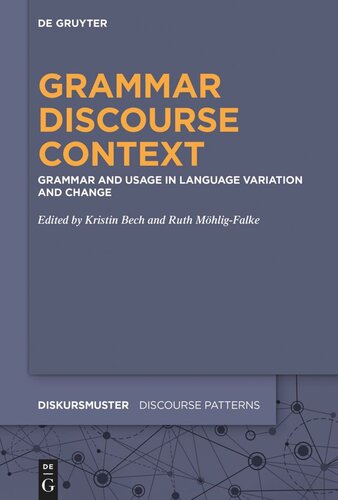

Most ebook files are in PDF format, so you can easily read them using various software such as Foxit Reader or directly on the Google Chrome browser.
Some ebook files are released by publishers in other formats such as .awz, .mobi, .epub, .fb2, etc. You may need to install specific software to read these formats on mobile/PC, such as Calibre.
Please read the tutorial at this link: https://ebookbell.com/faq
We offer FREE conversion to the popular formats you request; however, this may take some time. Therefore, right after payment, please email us, and we will try to provide the service as quickly as possible.
For some exceptional file formats or broken links (if any), please refrain from opening any disputes. Instead, email us first, and we will try to assist within a maximum of 6 hours.
EbookBell Team

4.0
16 reviewsThis collected volume brings together a wide array of international linguists working on diachronic language change with a specific focus on the history of English, who work within usage-based frameworks and investigate processes of grammatical change in context. Although usage-based linguistics emphasizes the centrality of the discourse context for language usage and cognition, this insight has not been fully integrated into the investigation of processes of grammatical variation and change. The structuralist heritage as well as corpus linguistic methodologies have favoured de-contextualized analytical perspectives on contemporary and historical language data and on the mechanisms and processes guiding grammatical variation and change. From a range of different perspectives, the contributions to this volume take up the challenge of contextualization in the investigation of grammatical variation and change in different stages of English language history and discuss central theoretical notions such as gradable grammaticality, motivation in hypervariation, and hypercharacterization. The book will be relevant to students and linguists working in the field of diachronic and variational linguistics and English language history.